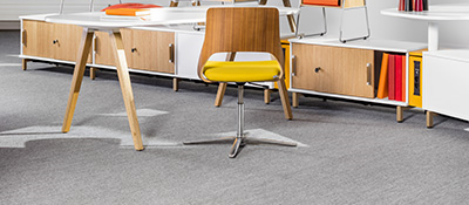July 8, 2016
Overwhelming majority of employees putting in unpaid extra hours 0
 The overwhelming majority of UK employees (81 percent) are working beyond their contracted hours, claims a report from recruitment firm Morgan McKinley. Overall, 81 percent of people put in the extra hours with senior staff most likely to work more than 10 hours over their contracted hours (42 percent) each week compared to 21 percent of those who had just started working. The Morgan McKinley Working Hours survey of 2,600 professionals in sectors such as banking and finance, claims that 75 percent of employees felt obliged to work beyond their contracted hours, yet just 13 percent of respondents to the survey say they are paid for working extra hours. The study claims that only 32 percent of professionals believe that they are productive during the extra hours that they work. A third (34 percent) don’t take a lunch break of any kind, with Millennials (21 percent) being the largest group to have a working day without their lunch break.
The overwhelming majority of UK employees (81 percent) are working beyond their contracted hours, claims a report from recruitment firm Morgan McKinley. Overall, 81 percent of people put in the extra hours with senior staff most likely to work more than 10 hours over their contracted hours (42 percent) each week compared to 21 percent of those who had just started working. The Morgan McKinley Working Hours survey of 2,600 professionals in sectors such as banking and finance, claims that 75 percent of employees felt obliged to work beyond their contracted hours, yet just 13 percent of respondents to the survey say they are paid for working extra hours. The study claims that only 32 percent of professionals believe that they are productive during the extra hours that they work. A third (34 percent) don’t take a lunch break of any kind, with Millennials (21 percent) being the largest group to have a working day without their lunch break.









 There is no doubt that the UK’s office based knowledge industry is facing a crisis in the form of a ‘wellbeing deficit’. Both the Confederation of British Industry (CBI) and Health and Safety Executive (HSE) have reported record levels of absenteeism, with the latter attributing 23.3 million lost working days to work-related ill-health, such as depression, stress, anxiety and musculoskeletal disorders. A great deal is already known about the causes of the key issues of employee stress and demotivation, but more work needs to be done to establish how organisations can meet their corporate goals with regard to these issues, whilst still engaging, motivating and nurturing their workforce. A significant body of published research has identified that a sense of ‘personal control’ can have a hugely positive impact on employee wellbeing, but how can we engender that control when it comes to creating a productive working environment?
There is no doubt that the UK’s office based knowledge industry is facing a crisis in the form of a ‘wellbeing deficit’. Both the Confederation of British Industry (CBI) and Health and Safety Executive (HSE) have reported record levels of absenteeism, with the latter attributing 23.3 million lost working days to work-related ill-health, such as depression, stress, anxiety and musculoskeletal disorders. A great deal is already known about the causes of the key issues of employee stress and demotivation, but more work needs to be done to establish how organisations can meet their corporate goals with regard to these issues, whilst still engaging, motivating and nurturing their workforce. A significant body of published research has identified that a sense of ‘personal control’ can have a hugely positive impact on employee wellbeing, but how can we engender that control when it comes to creating a productive working environment?






















July 20, 2016
We need to keep a more open mind about open plan office design
by Maciej Markowski • Comment, Facilities management, Workplace design
(more…)